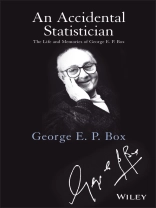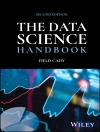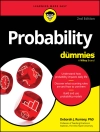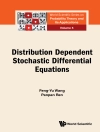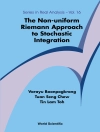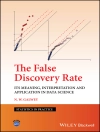Celebrating the life of an admired pioneer in
statistics
In this captivating and inspiring memoir, world-renowned
statistician George E. P. Box offers a firsthand account of his
life and statistical work. Writing in an engaging, charming style,
Dr. Box reveals the unlikely events that led him to a career in
statistics, beginning with his job as a chemist conducting
experiments for the British army during World War II. At this
turning point in his life and career, Dr. Box taught himself the
statistical methods necessary to analyze his own findings when
there were no statisticians available to check his work.
Throughout his autobiography, Dr. Box expertly weaves a personal
and professional narrative to illustrate the effects his work had
on his life and vice-versa. Interwoven between his research with
time series analysis, experimental design, and the quality
movement, Dr. Box recounts coming to the United States, his family
life, and stories of the people who mean the most to him.
This fascinating account balances the influence of both personal
and professional relationships to demonstrate the extraordinary
life of one of the greatest and most influential statisticians of
our time. An Accidental Statistician also features:
* Two forewords written by Dr. Box’s former
colleagues and closest confidants
* Personal insights from more than a dozen statisticians
on how Dr. Box has influenced and continues to touch their careers
and lives
* Numerous, previously unpublished photos from the
author’s personal collection
An Accidental Statistician is a compelling read for
statisticians in education or industry, mathematicians, engineers,
and anyone interested in the life story of an influential
intellectual who altered the world of modern statistics.
Зміст
Foreword xi
Second Foreword xv
Preface xix
Acknowledgments xxi
From The Publisher xxiii
1 Early Years 1
”Who in the world am I? Ah, that’s the great
puzzle.”
2 Army Life 19
”Contrarywise, if it was so, it might be: and if it
were so, it would be: but as it isn’t, it ain’t.
That’s logic.”
3 ICI and the Statistical Methods Panel 44
”Can you answer useful questions?”
4 George Barnard 53
”When I use a word . . . it means just what I
choose it to mean-neither more nor less.”
5 An Invitation to the United States 63
”The time has come, ‘the walrus said, ‘
to talk of many things. Of shoes and ships and sealing wax, of
cabbages and kings.”
6 Princeton 78
”Ah! Then yours wasn’t a really good
school.”
7 A New Life in Madison 94
”Digging for apples, your honor!”
8 Time Series 124
”What do you know about this
business?”
9 George Tiao and the Bayes Book 139
”It gets easier further on.”
10 Growing Up (Helen and Harry) 144
”There are 364 days when you might get unbirthday
presents, and only 1 for birthday presents, you
know.”
11 Fisher–Father and Son 151
”I only hope the boat won’t tipple
over!”
12 Bill Hunter and Some Ideas on Experimental Design
157
”There goes Bill!”
13 The Quality Movement 181
”The race is over!. . . ‘Everybody has won
and all must have prizes.”’
14 Adventures with Claire 197
”What else had you to learn?”
”Well, there was Mystery.”
15 The Many Sides of Mac 209
”There’s nothing like eating hay when
you’re feeling faint.”
16 Life in England 218
”What matters is how far we go? There is another
shore, you know, upon the other side.”
17 Journeys to Scandinavia 224
”What sort of people live here?”
18 A Second Home in Spain 228
”I know something interesting is sure to
happen.”
19 The Royal Society of London 245
20 Conclusion 247
21 Memories 248
Index 265
Про автора
GEORGE E. P. BOX, PHD, is Ronald Aylmer Fisher Professor Emeritus of Statistics and Industrial Engineering at the University of Wisconsin-Madison. His lifelong work has defined statistical analysis, while his name and research is a part of some of the most influential statistical constructs, including Box-Jenkins models, Box-Cox transformations, and Box-Behnken designs. Dr. Box is the coauthor of a number of Wiley books, including most recently, Statistical Control by Monitoring and Adjustment, Second Edition; Response Surfaces, Mixtures, and Ridge Analyses, Second Edition; and Improving Almost Anything: Ideas and Essays, Revised Edition.
